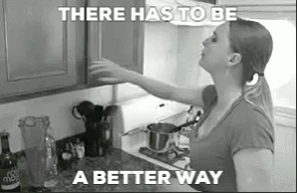In a recent edition of CloudHustle, I shared a bit about Anthropic's Subagents feature for Claude Code. As a reminder, Subagents allow you to create unique, separate, scoped sessions within Claude Code that do not share the context of the main session. This context separation enables Claude to drive collaboration between agents without impacting the all-important context of the main session.
On October 16th, Anthropic announced a new feature called Skills. Similar to Subagents, Skills are driven by specialized prompts, but they are much more powerful in practice. While Subagents are just a single prompt, Skills are collections of prompts, instructions, resources, and scripts that make them smart, contextual, and capable of acting. Subagents can best be understood as being vertical entities that play specific roles, like Frontend Developer, UX Designer, or Accounting SME. Skills, on the other hand, are more horizontal in nature, providing discoverable capability sets, such as PowerPoint creation, PDF document processing, or project build and release.
But, what makes Skills so powerful?
I Know Kung-Fu
Back in CloudHustle #131, I used an iconic scene from The Matrix to describe the potential of a future "AI App Store." Those predictions are now beginning to take shape, at least in part, thanks to Skills. In the referenced scene, Keanu Reeves' character Neo is hooked to a machine that can load new skills into his brain from reusable disks. After receiving a particularly useful skill, Neo looks into the camera and declares "I know kung fu."
In real life, developing a skill is a process, requiring research, training, and practice. Claude Skills fast track this process for AI by providing the knowledge, instructions, and capabilities as reusable files. Building a skill is as simple and creating files in a directory. Here is an example of what Neo's Kung Fu skill may have looked like if it were a Claude Skill:
Kung Fu
├── REFERENCE.md
├── resources
│ ├── History.md
│ └── Styles
│ ├── Bajiquan.md
│ ├── Chang Quan.md
│ ├── Lama Pai.md
│ ├── Monkey Kung Fu.md
│ └── Wing Chun.md
│
├── Weapons
│ ├── Biao.md
│ ├── Lio Xing Chui.md
│ └── Sanjiegun.md
│
├── scripts
│ ├── biu_jee_strike.sh
│ ├── butterfly_kick.sh
│ ├── ippon_seoi_nage.sh
│ ├── knife_defense.sh
│ ├── osoto_otoshi.sh
│ ├── short_choke.sh
│ └── side_choke.sh
└── SKILL.md
In the file Skill.md is a textual description of the Skill, including metadata. In our contrived Kung Fu example, Skill.md would look something like this:
## Metadata
name: Kung Fu
description: Apply the Kung Fu martial art, including various forms, weapons, and moves.
version: 1.0.0
## Overview
This Skill provides a complete understanding and all capabilities for the martial art of
Kung Fu, including various styles, such as Bajiquan and Wing Chun. In addition, the
Skills has detail on how to use weapons. Claude should reference the information in this
Skill when the need to either attack or defend itself arises.
## Resources
This Skill contains knowledge of the history of Kung Fu, several Kung Fu Styles, and a
variety of weapons. For a complete list of all resources, refer to `REFERENCES.md`,
which provides an index for all of the files contained within the `resources` directory.
## Capabilities
To perform a specific move, refer to the `scripts` directory, which contains executable
scripts for a variety of moves. Refer to `REFERENCES.md` for a complete index of moves.
Claude uses the files in a Skill's directory to understand what the Skill can do, how to load any resources that it includes, and how to run scripts that can take action. In addition to a Kung Fu Skill, one could create a Skill for a different martial art, like Karate, for example. Because Skills are composable, Claude can use multiple skills at the same time, enabling some truly powerful combinations.
Getting Practical
In a more realistic scenario, consider the creation of a Skill that can be used to build, test, and package a specific software project. At Mission, we have a piece of software called Mission Control (hopefully you know it and love it!). If we were to create Skills for building, testing, and packaging Mission Control, it may look something like this:
Mission Control Builder
├── REFERENCE.md
├── Resources
│ ├── Workflow.md
│ ├── Troubleshooting.md
├── scripts
│ ├── clean.sh
│ ├── build.sh
└── SKILL.md
Mission Control Tester
├── scripts
│ ├── run_tests.sh
│ ├── report_results.sh
└── SKILL.md
Mission Control Packager
├── REFERENCE.md
├── Resources
│ ├── Package Overview.md
│ ├── Troubleshooting.md
├── scripts
│ ├── dockerize.sh
└── SKILL.md
These directories could be placed in the .claude/skills directory for the project, and Claude Code could discover, compose, and use these skills to complete an end-to-end build, test, package cycle that is repeatable and reliable.
But Wait, There's More!
Claude is very smart about its usage of Skills, which can bundle a very large number of files. Using the instructions in Skills.md, Skill builders can advise Claude on which files are useful in which circumstance, enabling Claude to limit token usage by only loading resources that are needed to perform a particular task.
Claude Skills are also portable, meaning that they can be shared, distributed, and installed by anyone. They also work in all of Claude's "surfaces," including Claude Code, the Claude API, and Claude.ai.
But Wait, There Are Limitations!
While Claude Skills are incredibly powerful, they're not without their limits. Critically, Claude Skills are executed in isolated runtime environments without network access, the ability to install packages, or to install dependencies. Everything needed for a Skill must be included in the Skill itself.
Anthropic has indicated that they will continue to add capabilities and enhancements to Skills. MCP integration is coming, and the ability for organizations to create privately managed catalogs of Skills.
Get Yourself Some Skills!
Want to learn more about Claude Skills? Anthropic has some great information, including a technical deep dive, developer documentation, and an open source cookbook with example Skills.
I'm pretty excited about the direction that Anthropic has chosen over the past few years. They are steadily making Claude into a powerhouse that is useful to a wide spectrum of use cases.




